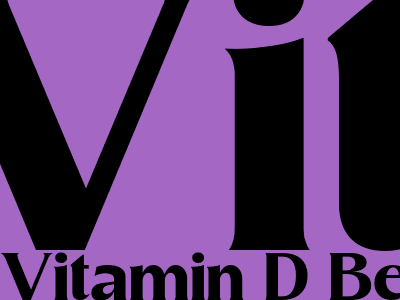Rethinking Vitamin D: Unlocking the Potential of the Sunshine Vitamin
Introduction
Vitamin D, often referred to as the "sunshine vitamin," has garnered significant attention due to its myriad health benefits. This fat-soluble vitamin plays a crucial role in calcium absorption and bone health, but recent research has unveiled its broader implications for overall well-being.
Benefits of Vitamin D
The benefits of vitamin D extend far beyond bone health. Emerging evidence suggests that it plays a role in immune system function, mood regulation, and possibly even cancer prevention.
- Immune Function: Vitamin D helps regulate the immune system, reducing the risk of infections and autoimmune diseases.
- Mood Regulation: Studies have linked low vitamin D levels to depression and anxiety. Vitamin D supplementation has shown promise in improving mood and reducing symptoms of these conditions.
- Cancer Prevention: Some research suggests that vitamin D may have anti-cancer properties, particularly for colon and breast cancer.
Sources of Vitamin D
The body produces vitamin D when exposed to sunlight. However, it can also be obtained from foods such as fatty fish (salmon, tuna), fortified milk, and eggs. Adequate sunlight exposure is the most natural and effective way to increase vitamin D levels.
Deficiency and Supplementation
Vitamin D deficiency is common, particularly in individuals with limited sun exposure or those with certain medical conditions. Symptoms of deficiency can include bone pain, muscle weakness, and increased risk of fractures.
Supplementation is recommended for individuals at risk of deficiency. Recommended daily intake varies depending on age, but typically ranges from 600 to 800 IU (International Units).
Excess Vitamin D
Excessive intake of vitamin D can lead to toxicity, causing symptoms such as nausea, vomiting, and kidney problems. It is important to follow recommended dosage guidelines and avoid excessive supplementation.
Conclusion
Vitamin D is an essential nutrient with a wide range of health benefits. It plays a crucial role in bone health, immune function, mood regulation, and potentially even cancer prevention. Adequate sunlight exposure is the primary source of vitamin D, supplemented by dietary intake when necessary. Understanding vitamin D's multifaceted benefits and ensuring adequate levels can contribute to overall well-being.

Komentar